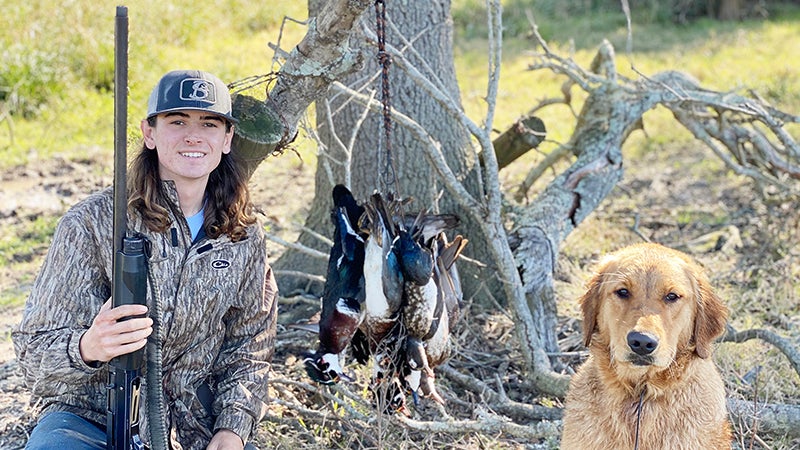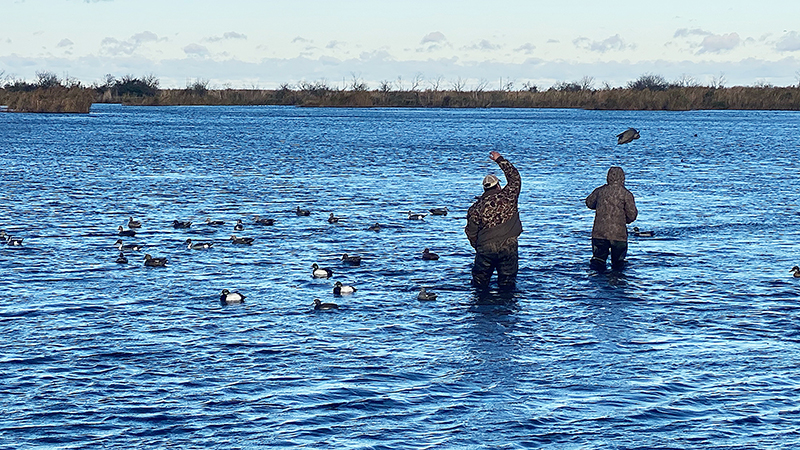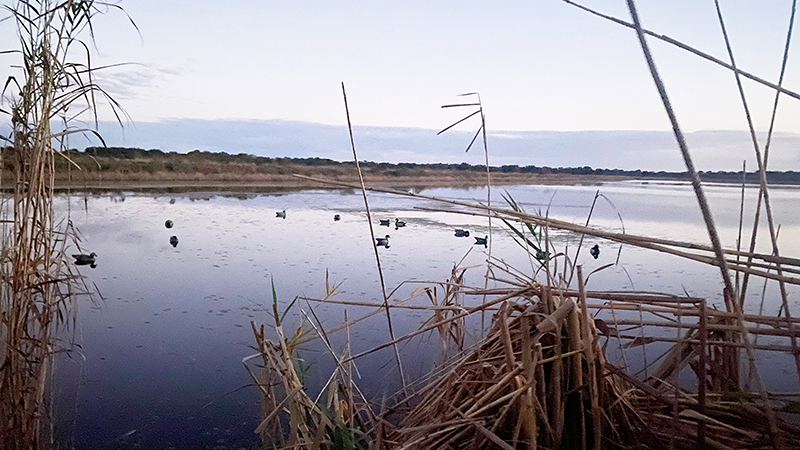BRIAN JOHNSON ON OUTDOORS — Use these late-season duck hunting tactics
Published 12:05 am Tuesday, January 5, 2021

- Noah Johnson and gunner celebrate a successful duck hunt. (Courtesy Photo)
|
Getting your Trinity Audio player ready...
|
Happy New Year my friends. Along with every new year, we have new hopes, dreams, goals and resolutions. Some of these work out and some don’t. Such is life.
One of my favorite things about the new year is January duck hunting. By this final month of duck season, many have given up hope and gone on to fishing or some other endeavor.
However, January has and probably always will be my favorite month for waterfowl adventures. Typically, the weather has finally cooled off and even gotten cold.
With a bit of luck, things up north are frozen and more ducks have migrated into our area, and the public land hunting pressure has decreased tremendously.
None of these things make duck hunting super easy, and you still need to be on your “A” game to fill your strap with birds.
Below are a few late season tips that will help you to be more successful.
1). Pay close attention to your decoy spread and don’t be afraid to experiment.
By this time of year, the marshes are full of coot, and ducks love to land right in the middle of them. Try setting out a spread of coot decoys with only a few gadwall or spooner decoys mixed in.
This often gives ducks the confidence to come on in. Another idea is to decrease the size of your spread. Sometimes in late season, less is more. I have seen times where a half dozen decoys worked better than six dozen.
Another great advantage of a small spread is that you can quickly pick up and relocate if you see the birds going down somewhere else.
2). Scout regularly By this time of year, it seems like the ducks are scattered.
Be sure to spend as much time as possible scouting before your hunt. If you find a large group of ducks, go back to that area the next morning.
Some public land areas have rules that govern scouting, but you can still pay attention to where you see ducks on your way into and out of the marsh.
Also be sure to watch for birds in the distance while you hunt. Pay attention to any gunfire that you hear in the distance.
Lots of shooting usually means lots of ducks. If you are hunting in a crowded area, always be respectful of other hunters and be sure to give them enough space to enjoy their hunt without worrying about you encroaching.
3). Concealment is key By January, ducks have been shot at for four months. They are wary, and you can’t get away with much movement.
Be sure to wear camouflage that matches your environment, gloves and a facemask or face paint. A well-concealed blind is also a great idea.
Make sure you have adequate cover in front of and behind you. Once you think you have enough cover on your blind, add twice as much and you should be fine!
In summary, if you are in the right spot, your decoy set up is great and the ducks can’t see you, your odds of a great hunt increase exponentially!
Good luck, happy hunting, and may God bless you this year beyond your wildest dreams!
Brian Johnson is pastor of First Baptist Church of Winnie, owner of DuckDogTrainer.com and writes about outdoors for Port Arthur Newsmedia.







